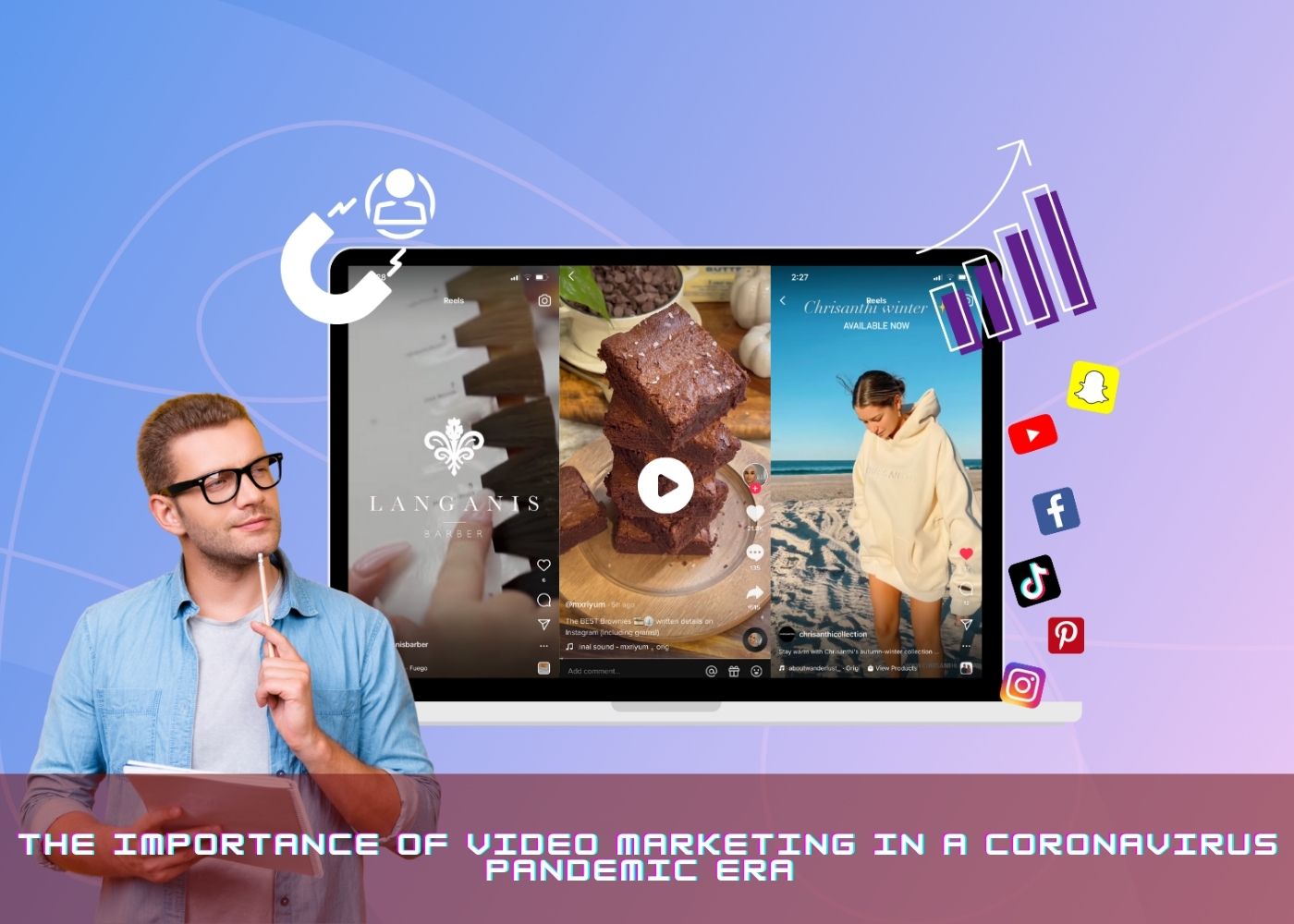Thousands of businesses have been forced to close their physical sites as a result of the Coronavirus epidemic, either reverting to a work-from-home model or closing their doors. It's understandably difficult for many businesses to generate the revenue needed to pay rent and other expenses, and it's disheartening to think that these financial difficulties may prevent a company from gaining the marketing exposure it needs to get up and running post-quarantine-related bans lifting.
Even amid this unusual and rather unpredictable “lockdown and restrictions," video marketing is both an economical and realistic choice for marketing your brand. Even if your actual site is closed or operating on limited hours, you can still use this time to establish a reputation for yourself and your business, and video has been proven to be one of the most efficient ways to do so.
Why Video Marketing Now?
Orders to "shelter in place" have put professionals and their customer bases in an interesting situation in which both daily business and marketing practices must adapt. Companies and organizations must encourage online viewership and digital interaction, not only for previous face-to-face workers learning how to operate in distant situations.
To maintain productivity and profitability, numerous industries that would normally rely on in-person interactions will need to implement video tools. Because professional networking meetings and trade exhibits may no longer be held in large public spaces, the vast majority — if not all — of these gatherings are slated for cancellation indefinitely. Similarly, salespeople can no longer meet with customers one-on-one like they used to.
As a result, businesses must move to video-based choices such as virtual conferences with customers, promotional videos shared across social media, and online marketing being prioritized in the budget.
Even day-to-day company operations, such as talking with coworkers and troubleshooting IT difficulties, require the usage of video to complete professional tasks and resolve product and technology-related concerns.
Video will play a critical role in the success of a company's marketing initiatives, in addition to maintaining the integrity of corporate operations. In the United States alone, around 75 million individuals watch online video programs on any given day. Given the near-ubiquity of stay-at-home orders, this number is very certainly substantially higher now. Because almost all firms must now reach audiences through a single digital platform, and traditional media routes for audience engagement have decreased, the unexpectedly severe competition compels the employment of new marketing strategies even more.
Companies should devote more of their advertising and marketing budgets to video production and streaming, whether it's for email campaigns, social media posts, web platforms, or video conference sales pitches, among other things.
What are Video Marketing More Relevant Today?
The ubiquity of screens in our life is said to be one of the reasons why video has become so popular in recent years. Quarantine and stay-at-home orders have made video marketing more relevant than ever.
Individuals seeking a tangible and trustworthy figurehead to follow, whether that figurehead is a politician or an industry-specific professional, may find themselves in times of uncertainty. Since no other medium allows people to absorb audiovisual content so immersively in real-time, video is the next best thing to in-person communication and touch. As a result, video is the most promising medium for engaging audiences and educating them.
Many firms, Film District UK inclusive, have changed how they handle day-to-day operations and communication in addition to turning toward more video-dominated marketing strategies. Companies may have to rethink business trips and training sessions in the future. Professionals who used to meet in person will limit their in-person meetings and instead use video conferences. The digital experience and virtual immersion of business techniques must be optimized. Whatever form these adaptations take, video media will almost certainly play a big part in the professional world.
If anything, this challenging period in our history will cause us to reconsider how we sell ourselves and conduct business.
Remember to Make It Mobile-friendly as Well.
Although many individuals watch video material on traditional platforms such as PCs and televisions, a majority of people (about 50%) prefer to watch it on their mobile devices. As a result, it's critical to optimize your video content for both vertical and horizontal orientations, as well as the disparities in viewing space sizes.
If you're sharing video marketing content on social media, for example, there's a good possibility your audience won't be able to hear what you're saying, so include captions or text overlays and make the video's purpose (or "call to action") easily visible to everyone.







